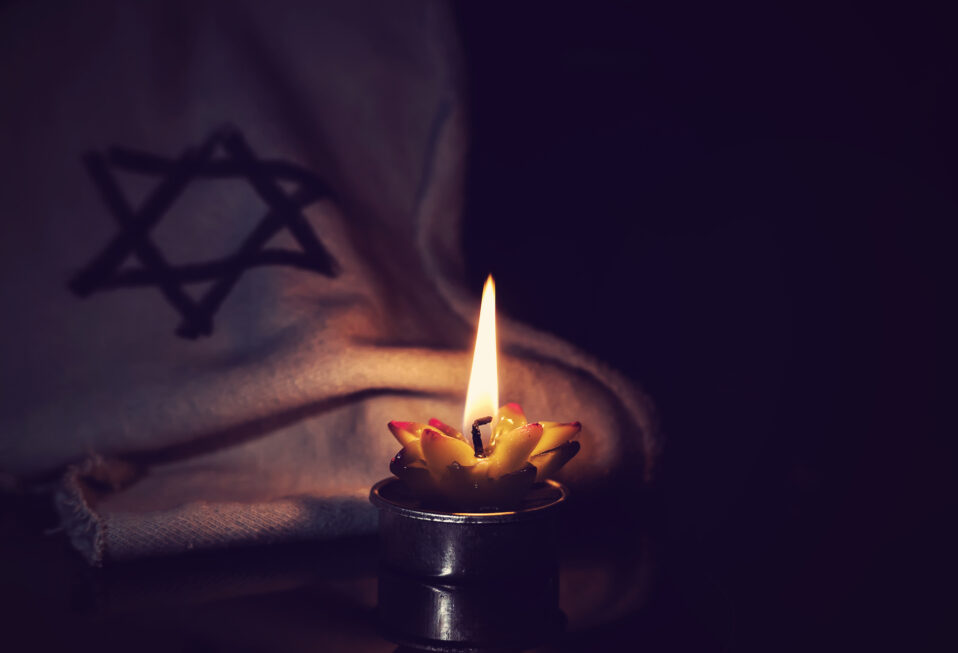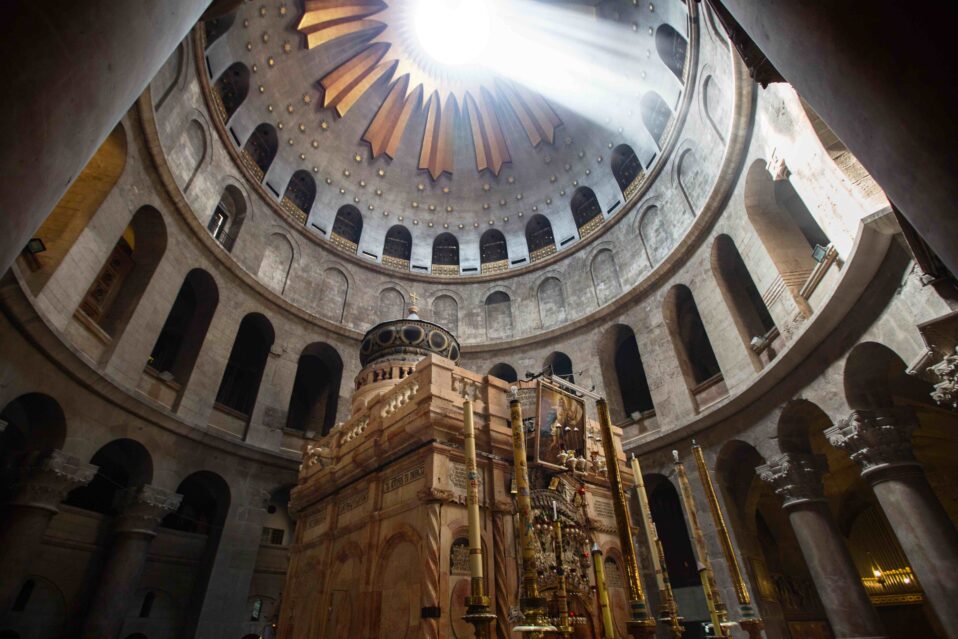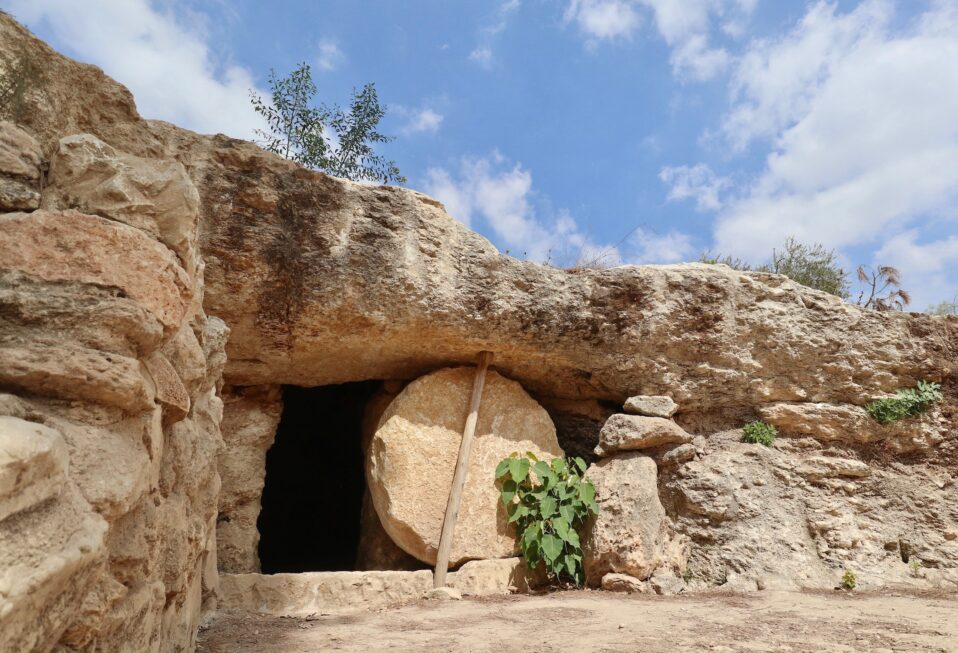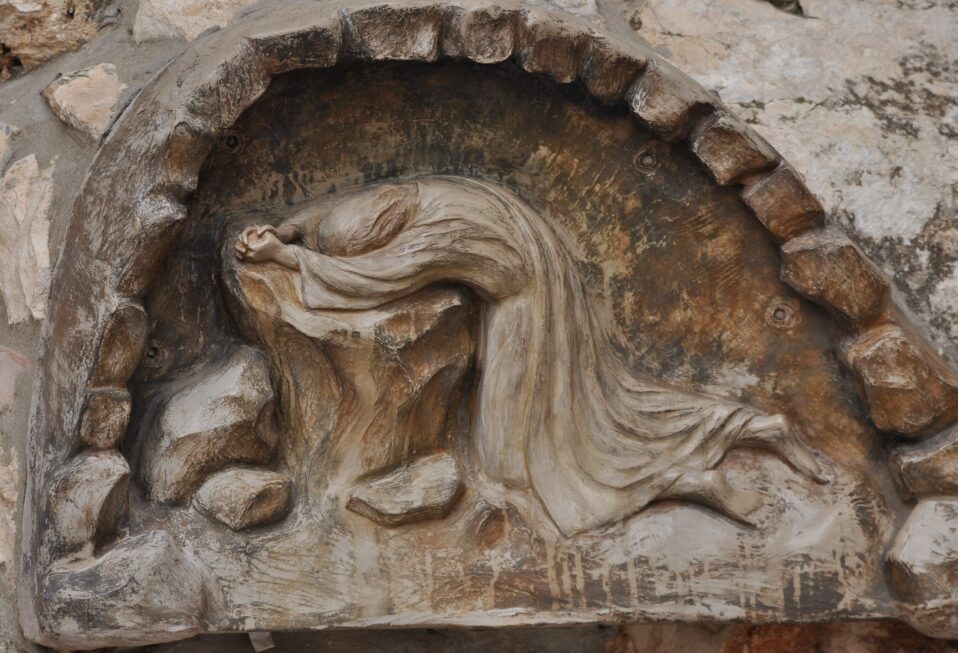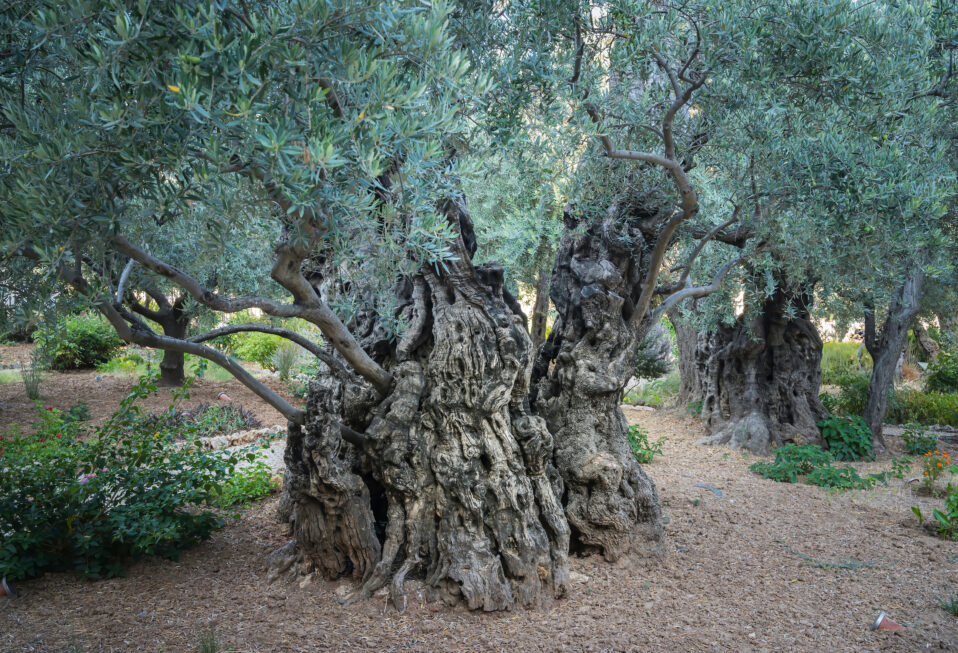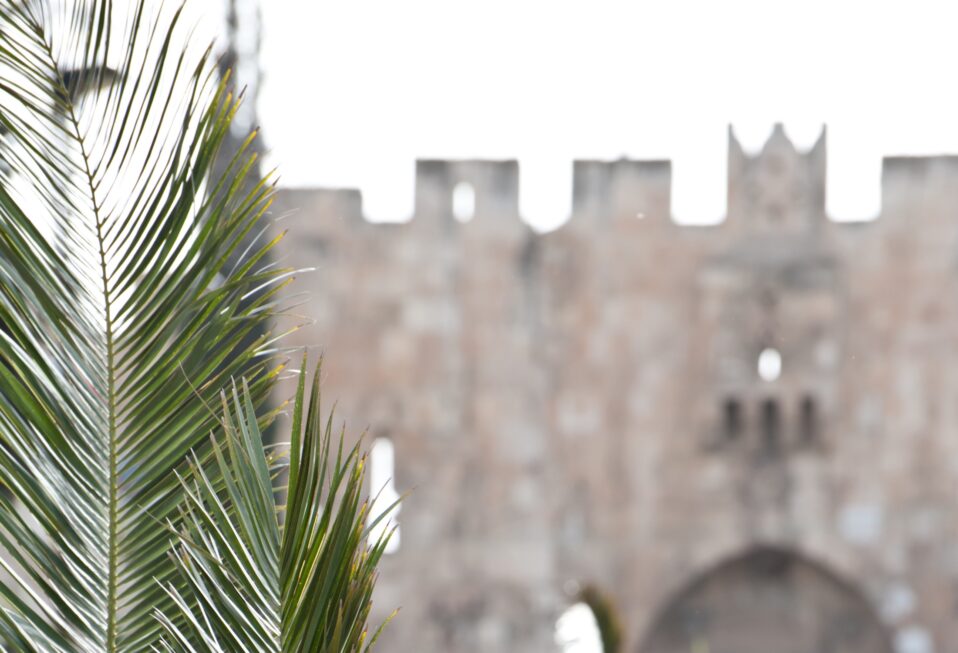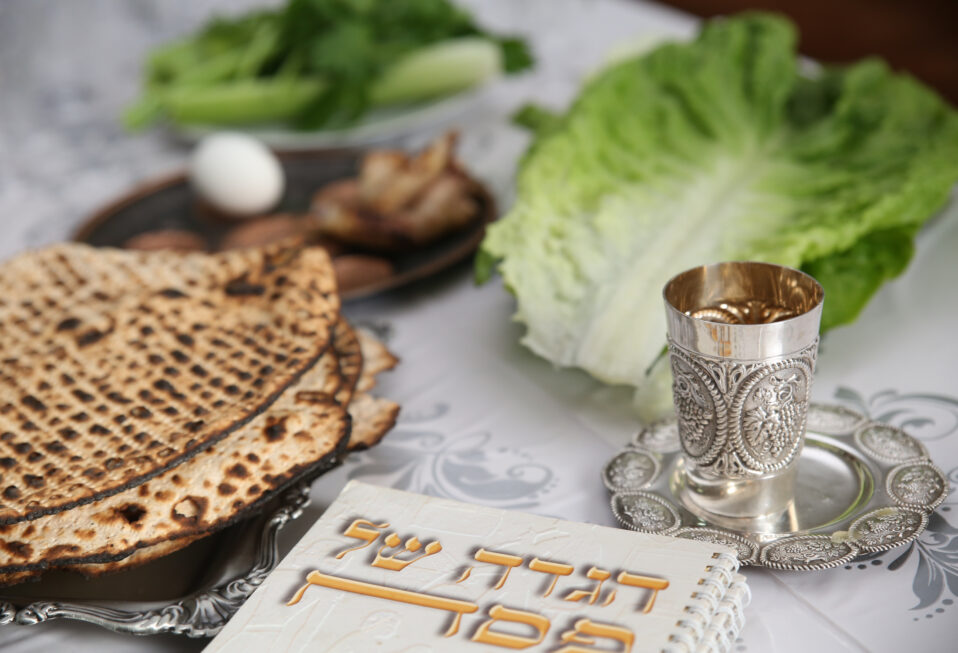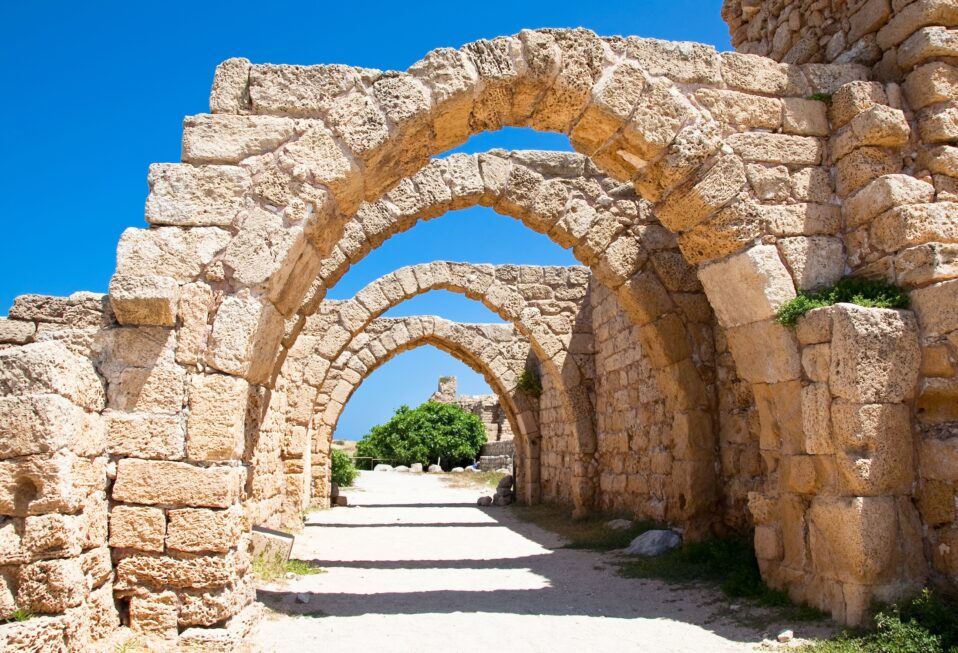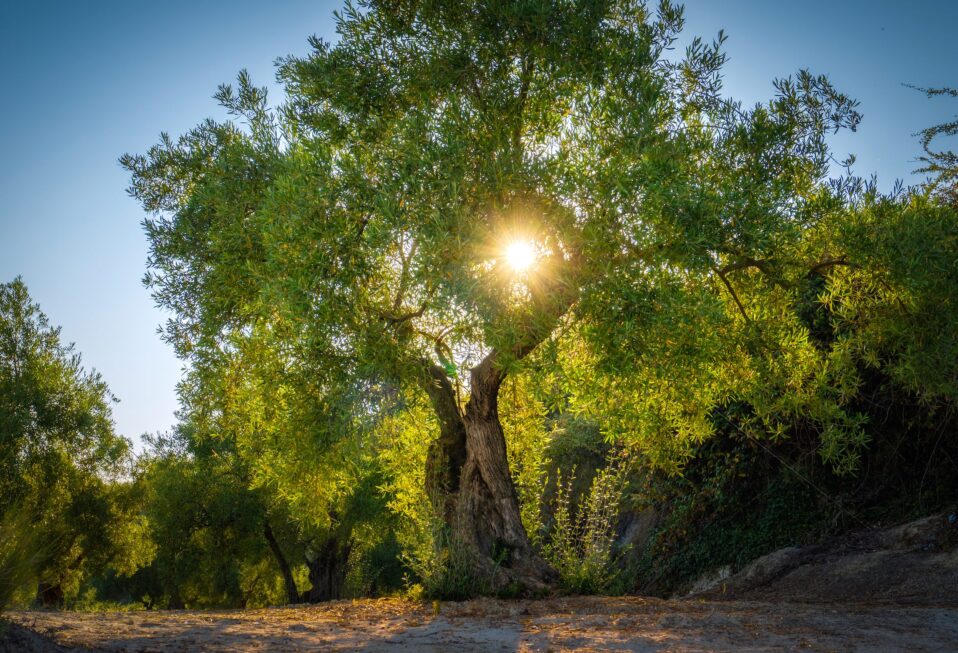By Arlene Bridges Samuels
During Holy Week, we rejoice in the realization that Israel still endures as the only land where the most profound love was expressed to our world. Two thousand years ago God, the Architect of the Universe and Creator of humankind, sent His Son to earth as a Jewish baby, who grew to be the Perfect Lamb and pay our debt of sin on the cross.
Worldwide, nearly 2 billion Christians are drawing near to Palm Sunday celebrations on April 13. Yet Open Doors’ World Watch List estimates that 365 million Christians face much of the persecution from Islamic terrorists, for example in Nigeria, and now Syria.
Israel has now entered the 18th month since the Islamic Hamas massacres of October 7, 2023. Hostages in Gaza, their families, and the entire Jewish nation are suffering a national trauma. Nevertheless, they are brave examples of how to navigate crises and traumas with incredible strength and resilience.
This, the 18th month of Israel’s daily trauma, is a rich time for prayer. Eighteen is a special number in Judaism. In Hebrew, it means “chai,” or life. “Chai” is a favorite in Jewish traditions and culture. Donations and gifts are often given in multiples of 18; the Amidah, also called the Shemoneh Esrei, is a key prayer with 18 blessings in Jewish services. For Holy Week, let us pray our own Amidah version for Israel, for our Jewish friends, and for persecuted Christians worldwide.
Holy Week 2025 is also an ideal time to celebrate what we Christians call Palm Sunday—by adopting an example of ancient Jewish names and symbols, rich with meaning. With worldwide Jew hatred literally exploding in evil deeds and lying words, we will gain a deeper understanding of ancient Jewish customs directly related to Jesus, our Jewish Savior.
Let us not forget that—by using language-based archaeology—digging deeper in the Bible’s 66 books reveals that indeed, God planned for our Christian faith by drawing it directly from Jewish roots. God created the Jews and their culture beginning with Abraham. He included non-Jews but grafted us into the Jewish roots as branches who choose to thrive in Jesus. Thus, Israel is our spiritual homeland.
In Holy Week 2025, we Christians can rescue a rich Jewish context too often lost in the annals of history. Here we go!
Two thousand years ago Jesus rode into Jerusalem, signaling the beginning of Passover week. Riding a wave of popularity, Jesus was adored by Jewish throngs from all over the known world. He loved Jerusalem, yet knew that His interrogation, beatings, betrayals, and death by crucifixion lay ahead.
And herein is the beautiful connection. The Bethlehem shepherds, who annually herded thousands of Passover lambs into Jerusalem, were enacting the ancient Day of Lambs! Lamb Selection Day—a divine cultural context, with awe-inspiring purpose.
The Sadducees—the leaders in charge of Temple sacrifices—also owned the Bethlehem fields and the lambs raised there. They hired shepherds, experts in animal husbandry, regarded as Levitical Priests because when ewes gave birth, their lambs were destined a year later as Temple sacrifices. The historian Josephus estimates that 265,000 lambs could be sacrificed in the Temple for Passover.
Exodus 12:5 instructs, “Your lamb shall be without blemish, a male of the first year,” so Sadducees held a lamb “beauty contest.” At the Sheep Gate in Jerusalem, they inspected each one making sure it was perfect. When Jesus rode into the city on a donkey, the priests already regarded Him a threat to their growing corrupt bureaucratic system. Many Jews believed in Jesus but not the political hierarchy. The priests controlled every step of the Temple sacrifices, selling them to Passover pilgrims. This explains why, later the same day, Jesus walked up to the Temple in a display of righteous anger. Using a whip, He overthrew the money changers’ tables and coins, saying as recorded in Matthew 21:12-13, “My house will be called a house of prayer, but you are making it a den of robbers.”
Allow this understanding to dwell deeply in your soul: Jesus, the Perfect Lamb of God, rode into Jerusalem on the Day of Lambs with thousands of scampering Bethlehem lambs parading into the holy city herded by Levitical shepherds from Bethlehem, Jesus’ birthplace. Think of it: If the Sadducees required upwards of 265,000 lambs for Temple sacrifices, Jesus, the perfect Lamb, made one Sacrifice for all time to pay our personal debt of sin! The contrast is a majestic reality of our Savior’s gift!
I wonder. Did some Shepherd priests who beheld Jesus’ birth in Bethlehem live long enough to behold Him once again as He entered Jerusalem among thousands of lambs? In Holy Week 2025, honor Jesus this year in a new and profound way, remembering His one sacrificial act covering every sin past, present, and future.
Our world is filled with chaos and lawlessness; however, it does not diminish or reverse the fact that Father God made a redemption plan through Jesus the Perfect Lamb giving us the kind of peace to overcome the chaos.
We welcome you to our CBN Israel team to pray for our world in John 3:16:
“For God so loved the world that He gave His one and only Son, that whoever believes in Him shall not perish but have eternal life.”
Prayer Points:
- Pray for traumatized Jews and persecuted Christians worldwide.
- Pray for ways to educate others with Jewish traditions that enrich our Christan faith.
- Pray for Jews in Israel and around the world as they begin Passover this Saturday evening.
- Pray for Christians throughout the Middle East as they enter Holy Week.
Arlene Bridges Samuels is the weekly feature columnist for CBN Israel since 2020. Working on the staff of the American Israel Public Affairs Committee (AIPAC) as their SE Regional Outreach Director for nine years, International Christian Embassy Jerusalem USA engaged her as the Leadership Outreach Director part-time for their project American Christian Leaders for Israel. Arlene is an author at The Blogs-Times of Israel, is published at AllIsrael.com and The Jerusalem Connection, and has traveled to Israel since 1990. By invitation, she attends Israel’s Government Press Office Christian Media Summits as part of Christian media worldwide. In 2024, Arlene and her husband Paul co-authored Mental Health Meltdown: Illuminating the Voices of Bipolar and Other Mental Illnesses. www.TheMentalHealthMeltdown.com.


